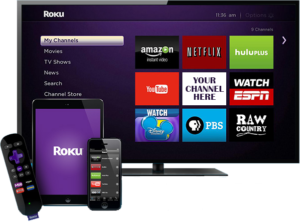- Knowledge is power
- The Future Of Possible
- Hibs and Ross County fans on final
- Tip of the day: That man again
- Hibs and Ross County fans on final
- Spieth in danger of missing cut
As screens get more modest and capacities to focus get more limited, it was inescapable that amusement would follow. As innovation propels, amusement adjusts to fit the new news sources on offer. Presently tech and film are joining in an astonishing transformative step that carries great substance directly to the center of your hand.

It appears to be that Hollywood is ending up back at square one with its disposition towards short film. The worldwide entertainment world began with short one-reel flicks before innovative progression made highlights conceivable. Presently, with innovation giving us pocket-sized film screens on our telephones and tablets, the studios and indies the same are hoping to short-shape amusement to profit by the developing educated crowd.
Right now, there are four principal players either on the scene or set to send off — applications that will convey short movies and film series to your telephone or tablet. Some are free or promotion upheld, and some will be membership based. Finally, maybe the worth of short structure is being perceived, and short movies are no longer to be discounted as straightforward “calling cards.” Here is a manual for those four primary players, with helpful connections to each organization.

The first and ostensibly biggest of these new applications is Quibi, another way to say “Light meals,” headed by previous Dreamworks proprietor Jeffrey Katzenberg and previous Hewlett Packard President Meg Whitman. Sending off in 2020, Quibi means to give Hollywood-style premium substance to the end client and has drawn in a billion bucks in venture from the top Hollywood studios, scaled down majors, and Silicon Valley financial backers. Large names like Guillermo del Toro and Sam Raimi have been drawn in by the as much as possible on offer, creating early evening style programming with an expected 7,000 bits of content being made accessible to clients when it dispatches.
With dispersion gets that last as long as seven years, Quibi is giving the biggest proposing to buyers and is relying upon leading the transformation in portable TV when it dispatches one year from now.

Currently in beta mode, Ficto launched earlier this year, and like many VOD platforms, works on a revenue-sharing basis with the filmmaker. It is proving popular with indie producers and already hosts a range of different genres on its app. Like the services below, it makes use of vertical filming, although I’ve noticed the technique of combining portrait and landscape images to tell stories through Ficto. I can see this taking off as a new filmmaking “language”—using different aspect ratios and picture orientations to introduce new characters and change the tension and pace of a story.
Right now, Ficto is running a competition for its filmmaking community, offering one million dollars to the first programme that gains one million views on its platform. Not only will this draw hopeful content creators to the platform, it will also build on the sense of community there. At this moment in time, Ficto doesn’t have the budget to spend that Quibi does, but it offers a generous 50/50 revenue share with its content creators.

I’ll happily stick my hand up in the air and say that I’ve only recently discovered the Chinese-owned TikTok. It seems to follow Snapchat’s vertical filming style, but instead of the videos disappearing after being viewed, they stay online to be watched on loop. TikTok also promotes a community feel with regular video challenges. Videos can be customised with filters and all sorts of music, with an emphasis on the user’s creativity.
THE FUTURE
The short film genre within the indie sector of the film industry is going to feel like something of a Wild West Frontier town. I foresee a rush of apps and online services offering content creators varying deals to snag pre-existing short films, and film markets adding short film strands to their events. Cannes, Palm Springs, Clermont-Ferrand and Torino already offer these, but I can see more short film markets emerging, providing that the money is there to be made.
As for the streaming services themselves, there have been many attempts by companies to launch “the Netflix for short films,” and perhaps one of the above four will be able to do it. For now, the smart money is on Quibi, but with Ficto having pipped them to the post in launching first, who knows what this exciting landscape will look like five or ten years from now?





Hi, this is a comment.
To get started with moderating, editing, and deleting comments, please visit the Comments screen in the dashboard.